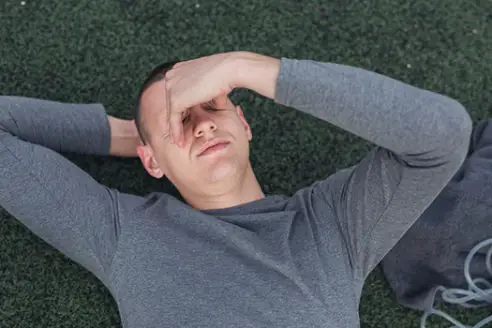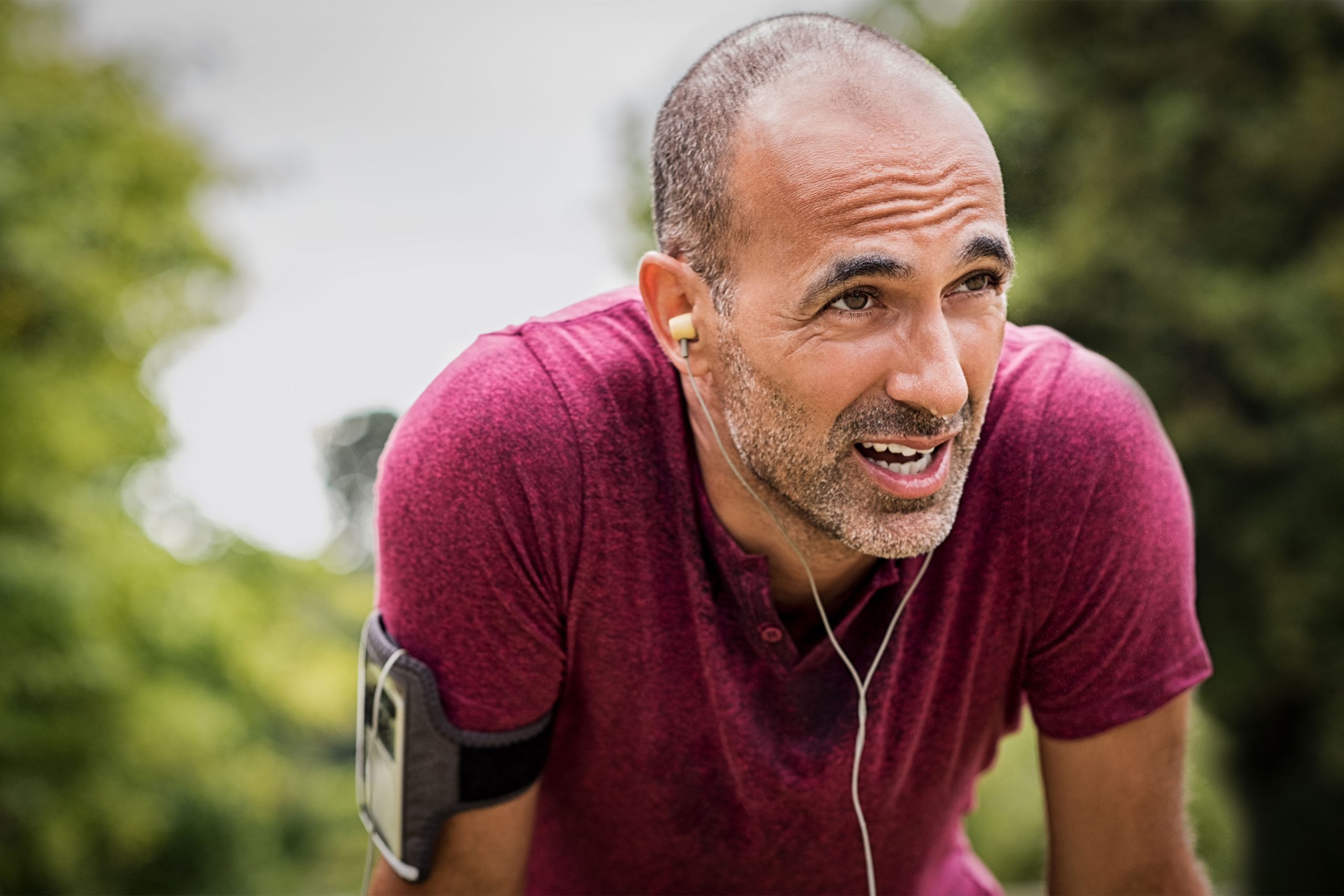Are you someone who experiences a drop in blood pressure after exercising? If so, you’re not alone. It’s a fairly common occurrence that can leave you feeling dizzy and lightheaded. But have you ever wondered why this happens? In this blog post, we’ll find out the reasons behind why your blood pressure may drop when you exercise, and whether or not it’s something to be concerned about.

Contents
Why Does My Blood Pressure Drop When I Exercise?
When it comes to understanding why your blood pressure drops during exercise, it’s important to consider a few key factors. Let’s take a closer look at the reasons behind this phenomenon:

1. Changes in Blood Flow: During exercise, the demand for oxygen and nutrients increases, causing blood flow to be redirected to the muscles and away from other areas of the body. This redistribution of blood can lead to a decrease in blood pressure.
2. Dilation of Blood Vessels: Exercise triggers the dilation of blood vessels, resulting in an increase in their diameter. This expansion allows for improved blood flow and reduces resistance within the vessels. However, this dilation can cause a drop in blood pressure, especially when transitioning from rest to exercise.
3. Dehydration: Sweating during exercise can contribute to dehydration, which can also lead to a drop in blood pressure. When your body is dehydrated, it may struggle to maintain adequate blood volume, causing a decrease in pressure.
What are the Effects of Blood Pressure Drop during Exercise?
When you engage in exercise, it’s not uncommon to experience a drop in your blood pressure. This phenomenon, known as post-exercise hypotension, is a normal response that occurs in many individuals. It’s important to understand the effects of this drop in blood pressure to exercise safely and effectively.
1. Decrease in Systolic and Diastolic Blood Pressure: During exercise, your body increases blood flow to meet the demands of your muscles. However, once you stop exercising, blood vessels begin to return to their normal size. This dilation and constriction of blood vessels can lead to a temporary decrease in both systolic and diastolic blood pressure.
2. Duration of the Drop: Following a workout, it’s typical for your systolic blood pressure to decrease by 5 to 20 millimeters of mercury (mm Hg) and remain lowered for several hours. This post-exercise decrease in blood pressure may vary from person to person, but it’s generally a temporary effect.
3. Potential Benefits: While a drop in blood pressure during exercise may seem concerning, it can actually have some positive effects. Regular exercise, including aerobic and resistance training, has been shown to contribute to long-term reductions in resting blood pressure. These changes can help manage and prevent hypertension, reducing the risk of cardiovascular diseases.
4. Importance of Monitoring: It’s essential to monitor your blood pressure before, during, and after exercise, especially if you have underlying health conditions. This allows you to be aware of any significant fluctuations and make appropriate adjustments to your workout routine. If you experience extreme drops in blood pressure or have concerns, it’s always wise to consult with a healthcare professional.
How to Manage Blood Pressure Drop during Exercise?
Here are some strategies to help you manage blood pressure drop during exercise:
- Stay hydrated: Dehydration can contribute to a drop in blood pressure during exercise. Make sure to drink plenty of water before, during, and after your workout sessions. This will help maintain your blood volume and prevent excessive decreases in blood pressure.
- Gradually increase intensity: Avoid sudden and intense changes in exercise intensity. Instead, gradually increase the intensity of your workouts over time. This allows your body to adapt and reduces the risk of a sudden drop in blood pressure.
- Maintain proper nutrition: Eating a well-balanced diet that includes adequate amounts of fruits, vegetables, whole grains, and lean proteins can help regulate blood pressure. Nutrient deficiencies can contribute to fluctuations in blood pressure, so it’s important to fuel your body with the necessary nutrients.
- Monitor your blood pressure: If you have a history of low blood pressure or experience symptoms like dizziness or lightheadedness during exercise, consider monitoring your blood pressure regularly. This will allow you to identify any abnormal changes and seek appropriate medical advice if needed.
Is There a Way to Monitor Your Blood Pressure During Exercise?
Here are a few ways to monitor your blood pressure during exercise:

- Pre-Workout Measurements: Before starting your exercise routine, take a few moments to measure your blood pressure. This baseline measurement will provide you with a starting point for comparison.
- During-Workout Checks: It’s a good idea to check your blood pressure at regular intervals during your workout to track any changes. This can be done using a portable blood pressure monitor or smartwatch with built-in monitoring capabilities.
- Awareness of Symptoms: Pay attention to any symptoms or signs that your blood pressure may be dropping or rising. These can include dizziness, lightheadedness, or shortness of breath. If you experience any of these symptoms, take a break and check your blood pressure.
- Post-Workout Check: After you’ve completed your exercise session, take another blood pressure measurement. This will help you determine how your body responds to the workout and if any adjustments need to be made for future sessions.
Frequently Asked Questions
Is it normal for blood pressure to drop when exercising?
Yes, it is normal for blood pressure to drop during exercise. Exercise can cause blood to pool in the extremities, leading to a decrease in blood pressure. Additionally, blood vessels near the skin’s surface widen during exercise, further contributing to lowered blood pressure.
What should I do if my blood pressure is 160 over 100?
If your blood pressure is consistently high, such as 160 over 100, it is important to consult a healthcare professional. They will likely recommend taking medication to lower your blood pressure and provide guidance on managing it effectively.
Does dehydration cause low blood pressure?
Yes, dehydration can cause low blood pressure. When the body lacks sufficient water, the blood volume decreases, leading to a drop in blood pressure.

Hello, I’m Ravindra. Over the years, I’ve immersed myself deeply into the world of fitness and health, transforming both my body and mind. Writing has allowed me to share my journey, insights, and expertise with those just starting out and seasoned fitness enthusiasts alike. Beyond just routines and diets, I believe in inspiring others to adopt a holistic approach to well-being.
